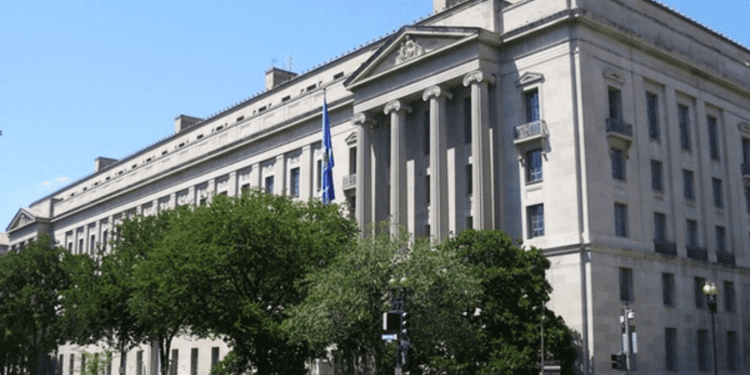The department held a press conference at noon Eastern time on Wednesday.
- The US Justice Department launched a significant worldwide cryptocurrency enforcement action.
- Leadership from the FBI, Treasury Department and the Attorney General’s office lead a press conference on the matter last week.
Charges Against Bitzlato for Laundering $700M
The creator of Bitzlato Ltd. has been detained in Miami, according to officials who announced the arrests during a news conference in Washington on Wednesday. The U.S. Justice Department and Treasury Department have charged Bitzlato Ltd. with money laundering.
It has been effectively shut down to prevent the Hong Kong-based website Bitzlato from serving criminals with ties to Russia. According to Deputy Attorney General Lisa Monaco, its founder Anatoly Legkodymov has been brought into American custody. She overviewed the coordinated enforcement efforts involving the Federal Bureau of Investigation, French officials, and the U.S. Treasury Department. She claimed they destroyed “a busy area of this criminal ecosystem.”
The Treasury’s Financial Crimes Enforcement Network (FinCEN) publicly designated the business as a “primary money-laundering concern,” one of the most severe designations in the government’s arsenal for combating crime because it typically locks off a corporation from the international financial system. According to Treasury Deputy Secretary Wally-Adeyemo, the term effectively labels the exchange as “a worldwide pariah.”
Legkodymov, a Russian national and the company’s principal owner, once resided in China. He was due to be arraigned on Wednesday in the Southern District of Florida U.S. District Court following his arrest.
According to Justice Department authorities, the cryptocurrency exchange hosted the wallets of criminals buying and selling illegal items and provided peer-to-peer services, including $700 million in direct and indirect payments over many years. According to FinCEN, the business handled significant amounts of illegal transactions for Russian ransomware perpetrators, including those with ties to the Russian government.
According to Monaco, the raid on Bitzlato was the most significant U.S. move against a cryptocurrency criminal network. The business, whose servers have been taken over, was also connected to regular transactions with the Russian-based Hydra Market. This darknet market was the object of an investigation by American officials last year. According to Monaco, the “Hydra-Bitzlato crypto-crime axis” has been dismantled.
OFAC Sanctioned Russia-based Hydra Market
According to a press release, Treasury Secretary Janet Yellen noted cooperation with allies like Germany and Estonia and said that the global threat of cybercrime and ransomware that originates in Russia, as well as the ability of criminal leaders to operate there with impunity, are deeply concerning to the United States. The news announcement stated that the U.S. Treasury is also identifying more than 100 virtual currency addresses linked to Hydra’s operations that have been utilized to carry out illegal transactions.
The Ryuk, Sodinokibi, and Conti ransomware versions, among others, generated nearly $8 million in ransomware proceeds that found their way through Hydra’s virtual currency accounts, according to OFAC’s investigation. According to OFAC, citing blockchain analysts, Hydra was the source of almost 86% of the illegal bitcoin that Russian virtual currency exchanges directly received in 2019.
Conclusion
Through more transparency, the initiatives seek to improve American national security and the financial system’s integrity while making it easier to spot illegal economic behavior involving digital assets, including CVC. This move illustrates the Treasury’s use of resources to stop ransomware threats and target unlawful financial conduct. Russia is a refuge for cybercriminals, and the Kremlin frequently uses them for its nefarious ends. The fact that the majority of ransomware assaults reported to FinCEN in the second half of 2021 were carried out by ransomware versions with ties to Russia is evidence that Bitzlato is a part of a larger ecosystem of Russian cybercriminals who are allowed to operate freely in Russia.














